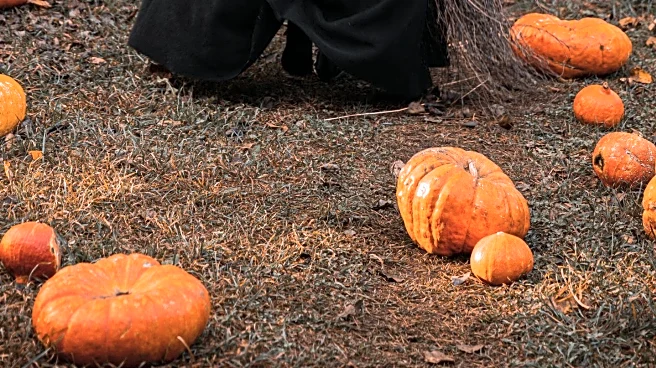What's Happening?
Above the Law has launched its annual legally themed Halloween costume contest, inviting readers to submit their creative entries. This year marks the sixteenth iteration of the competition, which features costumes inspired by legal cases and political
pop culture. Among the finalists are costumes depicting a fictional heist at the Louvre, a nod to the Leonard v. PepsiCo contracts case, and a poignant representation of Lady Justice, reflecting current challenges to the rule of law in America. Voting for the best costume is open until November 9, 2025, allowing participants to choose their favorite from the three finalists.
Why It's Important?
The contest highlights the intersection of law and culture, providing a platform for legal professionals and enthusiasts to express creativity while engaging with significant legal themes. It serves as a reminder of the cultural impact of legal cases and the ongoing dialogue about justice in society. The depiction of Lady Justice, in particular, underscores concerns about the state of the rule of law, prompting reflection on legal integrity and societal values. This event fosters community engagement and encourages a lighthearted yet meaningful exploration of legal topics.
What's Next?
Participants and readers are encouraged to vote for their favorite costume, with polls closing on November 9, 2025. The winner will be announced shortly thereafter, celebrating the creativity and thematic relevance of the entries. The contest may inspire future discussions and events that blend legal themes with cultural expression, potentially influencing how legal professionals and the public perceive and interact with legal concepts.
Beyond the Headlines
The contest not only entertains but also serves as a cultural commentary on the legal profession and its societal implications. By incorporating political and legal themes into costume design, participants engage in a form of artistic expression that can provoke thought and discussion about the role of law in everyday life. This creative approach may encourage broader public interest in legal issues and inspire similar initiatives that bridge the gap between law and culture.

















